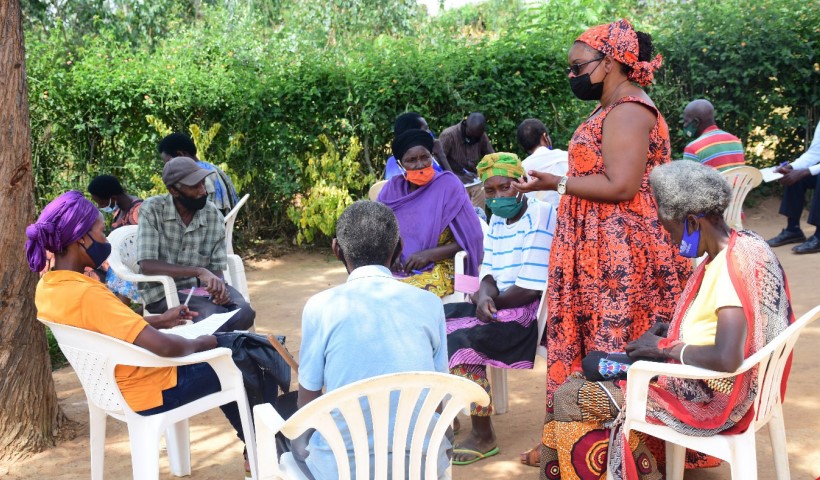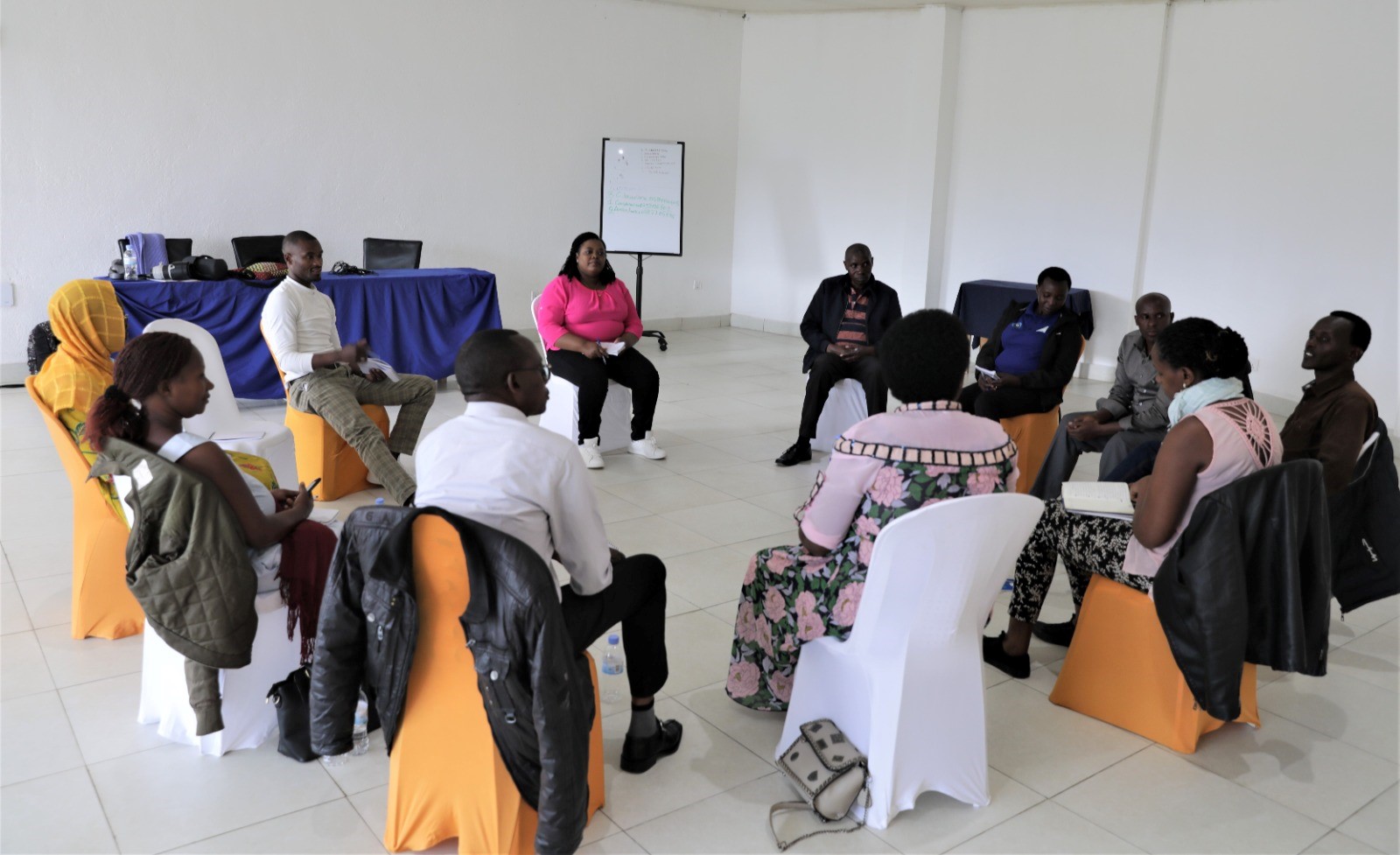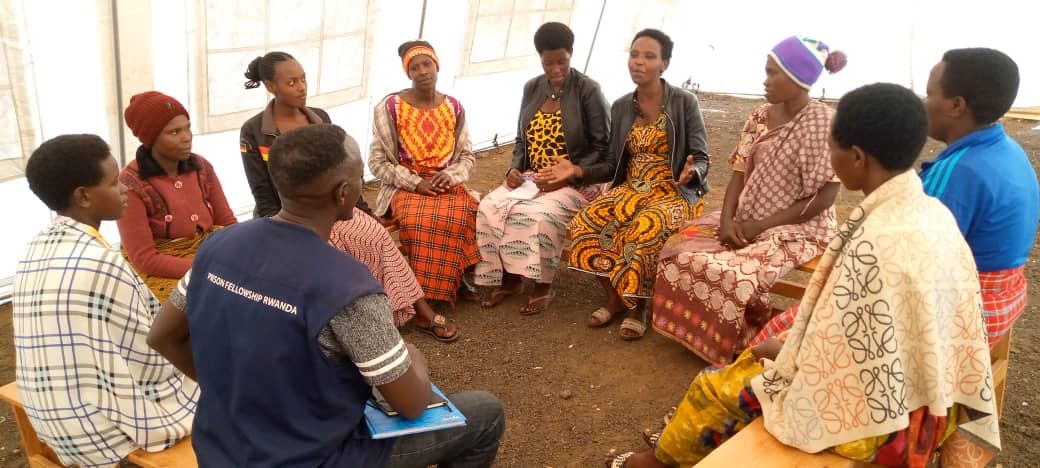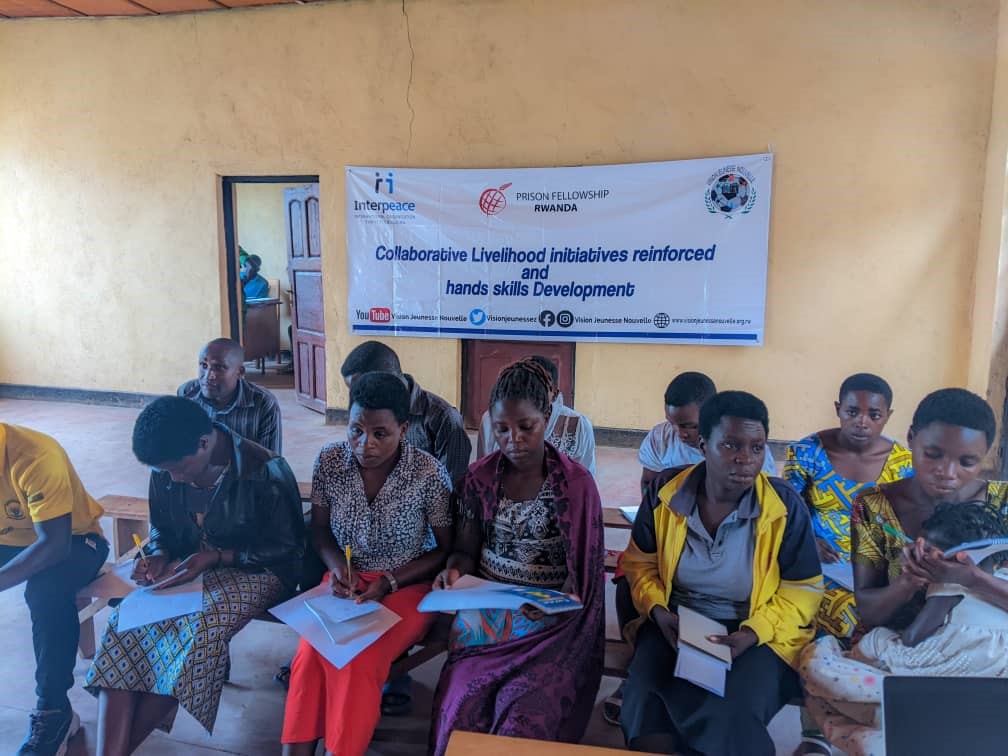Societal Healing Program
Managed by: Benjamin Ndizeye
In partnership
with the Rwandan Government’s Ministry of National Unity and Civic Engagement
(MINUBUMWE), Interpeace, Haguruka, Dignity in Detention (DIDE), and the Embassy
of Sweden as a donor, Prison Fellowship Rwanda (PFR) is implementing the
program Reinforcing Community Capacity
for Social Cohesion and Reconciliation through Societal Trauma Healing' in five
districts: Nyagatare, Ngoma, Musanze, Nyabihu, and Nyamagabe.

The societal
healing program adopts a comprehensive and distinctive approach, providing
mental health treatments, improving social cohesion, and developing long-term
livelihoods for the intended beneficiaries. These include Genocide survivors,
Genocide perpetrators, ex-combatants, and returnees from 1959 to 1994 (current
and former/released offenders), in addition to the families of these
individuals, youth, and local leaders. Other planned participants are
community-based groups and entities involved in mental health, social cohesion,
and joint economic development initiatives at the community level.

The programme
provides safe spaces for dialogue, healing, and capacity strengthening of
existing formal mental health structures and local societal healing
practitioners to strengthen a comprehensive and community-based mental health
and psychosocial support system.

Our program aims to contribute to the consolidation of a peaceful, resilient, and inclusive Rwandan society, enabling it to overcome the wounds of the past, peacefully manage conflicts and diversity, collectively and inclusively strengthen livelihood resilience, and empower citizens to influence policies responsive to their priorities. It is implemented through three axes: mental health, social cohesion, and sustainable collaborative livelihoods. Gender, climate resilience, and conflict sensitivity aspects are also integrated as cross-cutting issues across the three axes.

